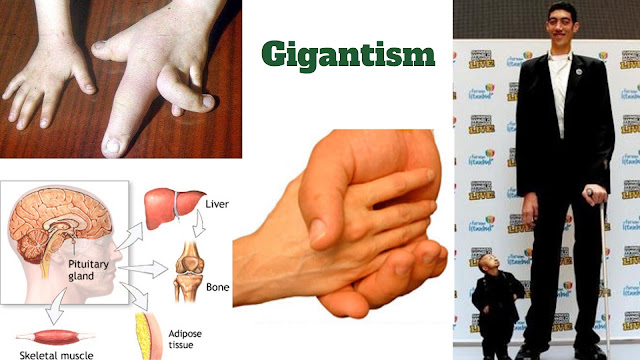Rare Diseases of Endocrine System

Gigantism Gigantism also called gigantism obtained from a Greek word gigas, is a Rare Endocrine Diseases characterized by excessive growth hormone which accelerates the growth of muscle, bones and connective tissue in childhood or youth before the end of puberty. It is always the consequence of a growth hormone secreting pituitary tumour. When left untreated or uncontrolled, some individuals suffering from gigantism have grown in excess of eight feet (2.4 m) tall. The most well-known example is that of Robert Wadlow, the tallest person in history. Cause Most common reason of gigantism is Pituitary gland tumor . The pea sized pituitary gland is located at the base of the brain; it makes hormones that control body temperature, metabolism growth, sexual development and urine production. Some other cause of gigantism is: · McCune-Albright disease is a disorder that causes unusual growth of bone tissues, gland irregu...



